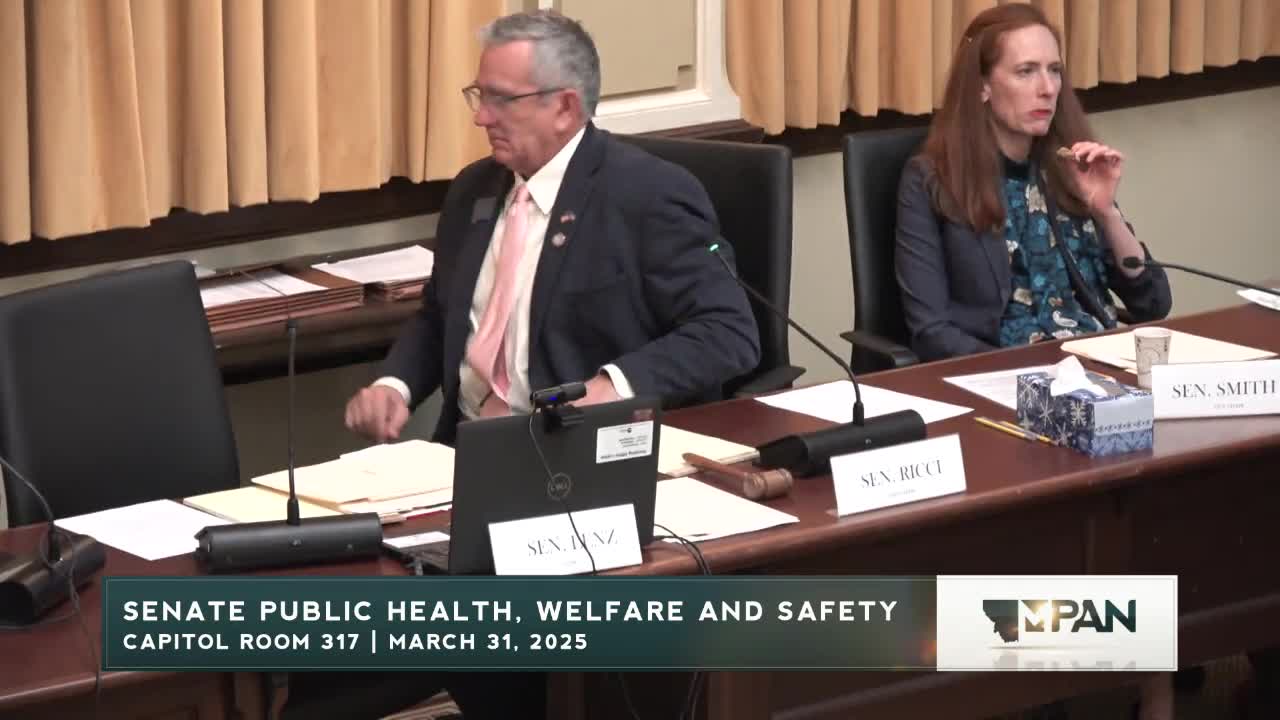Article not found
This article is no longer available. But don't worry—we've gathered other articles that discuss the same topic.
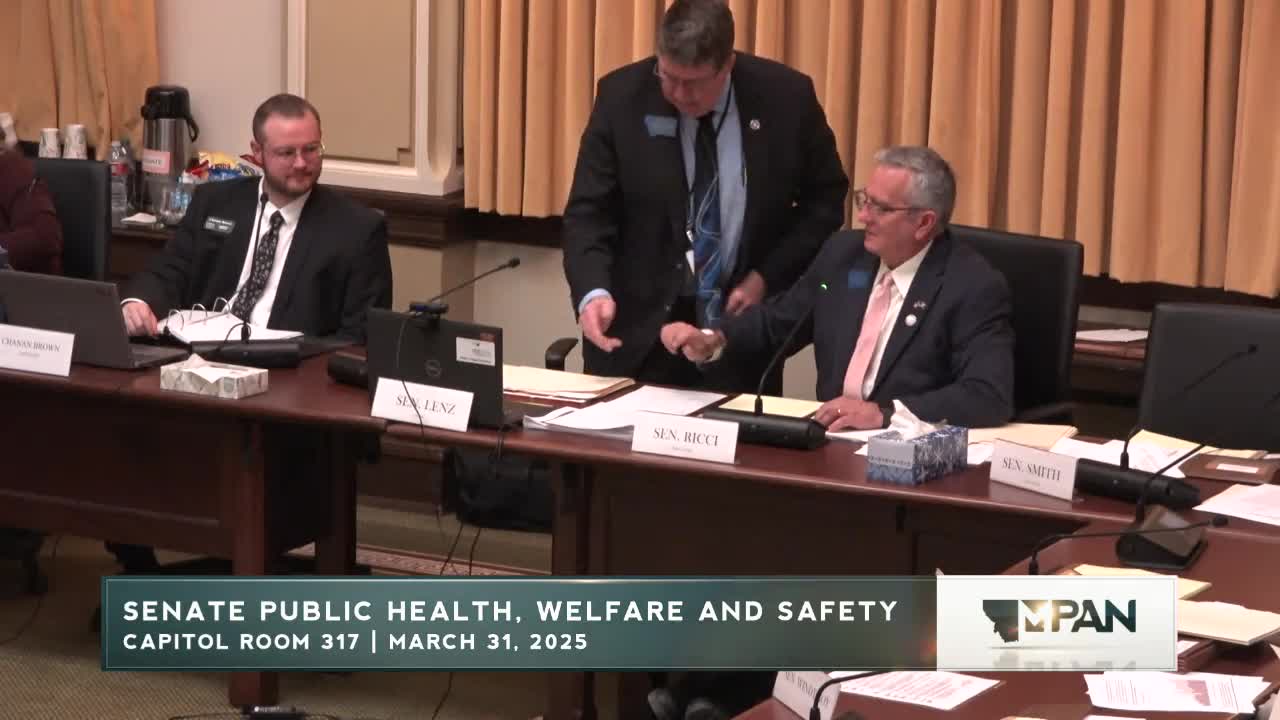
Senate panel advances bill capping nonprofit hospital charges at 300% of Medicare; excise tax starts 2027
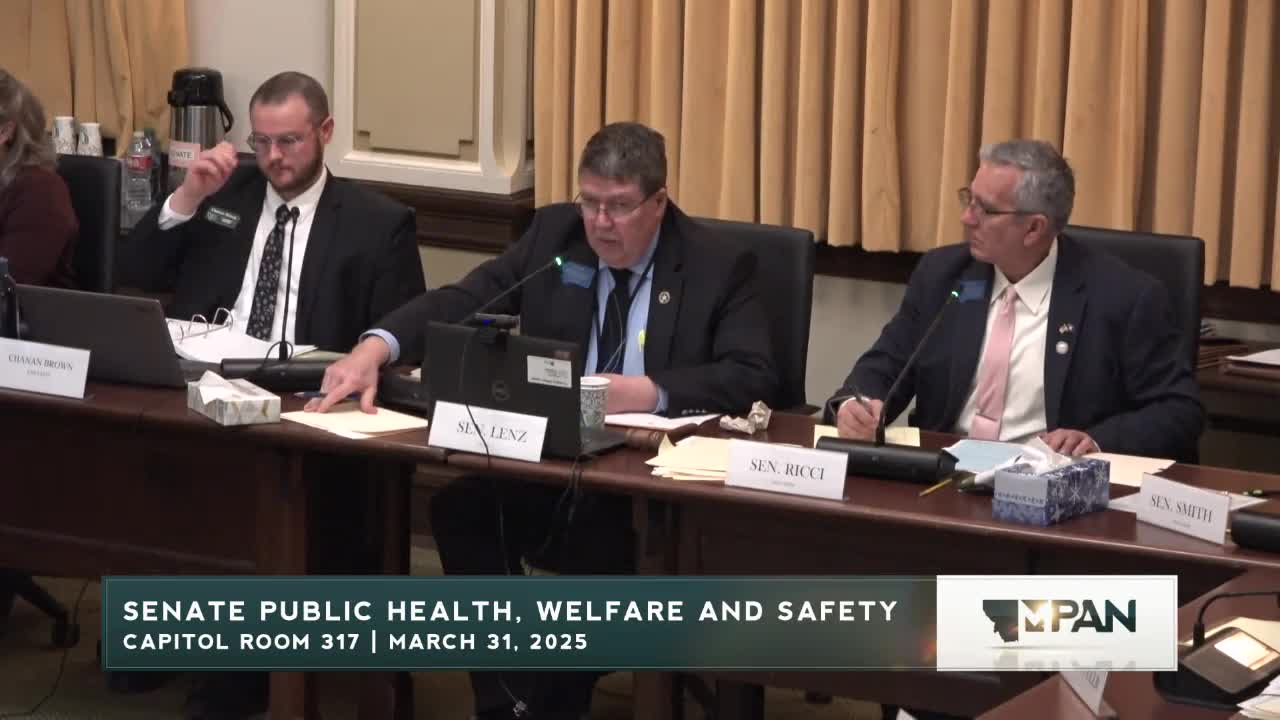
Sponsor seeks raising Medicaid community‑engagement age threshold from 55 to 62; advocates and AARP warn of coverage loss
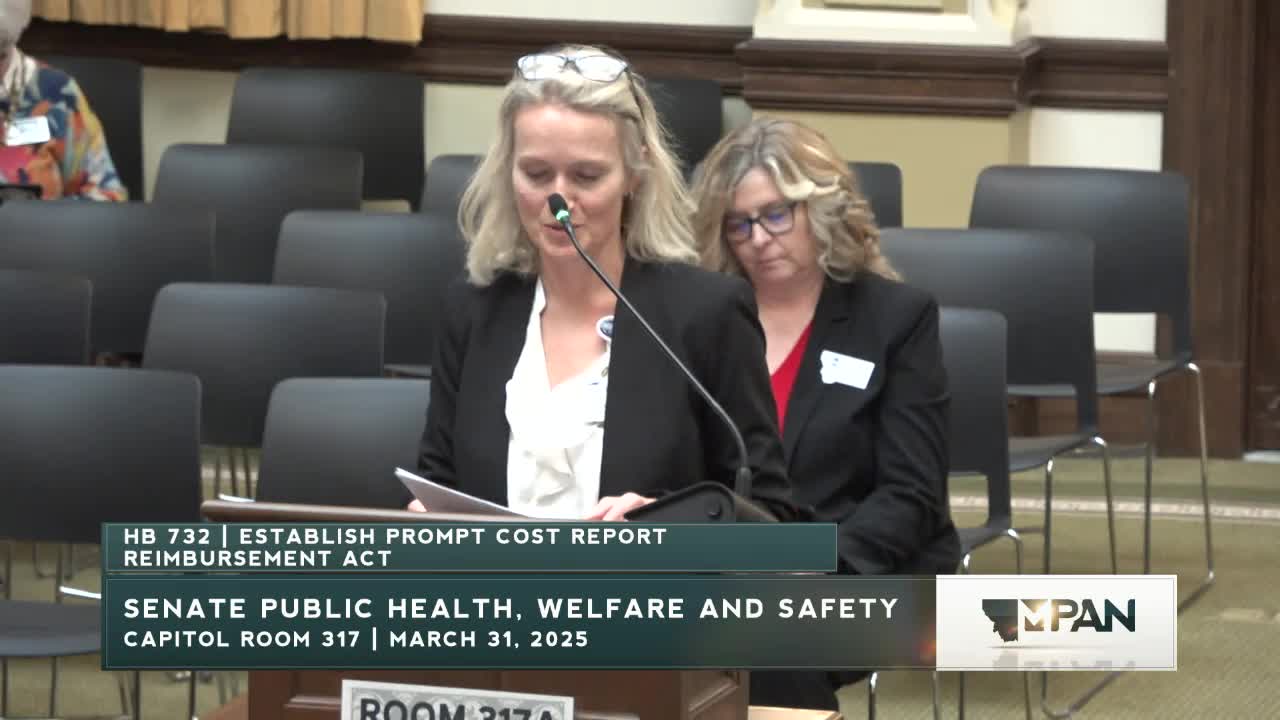
Bill would create a Montana Nurse Corps to add voluntary home‑visit nursing capacity; modeled after Physician Corps
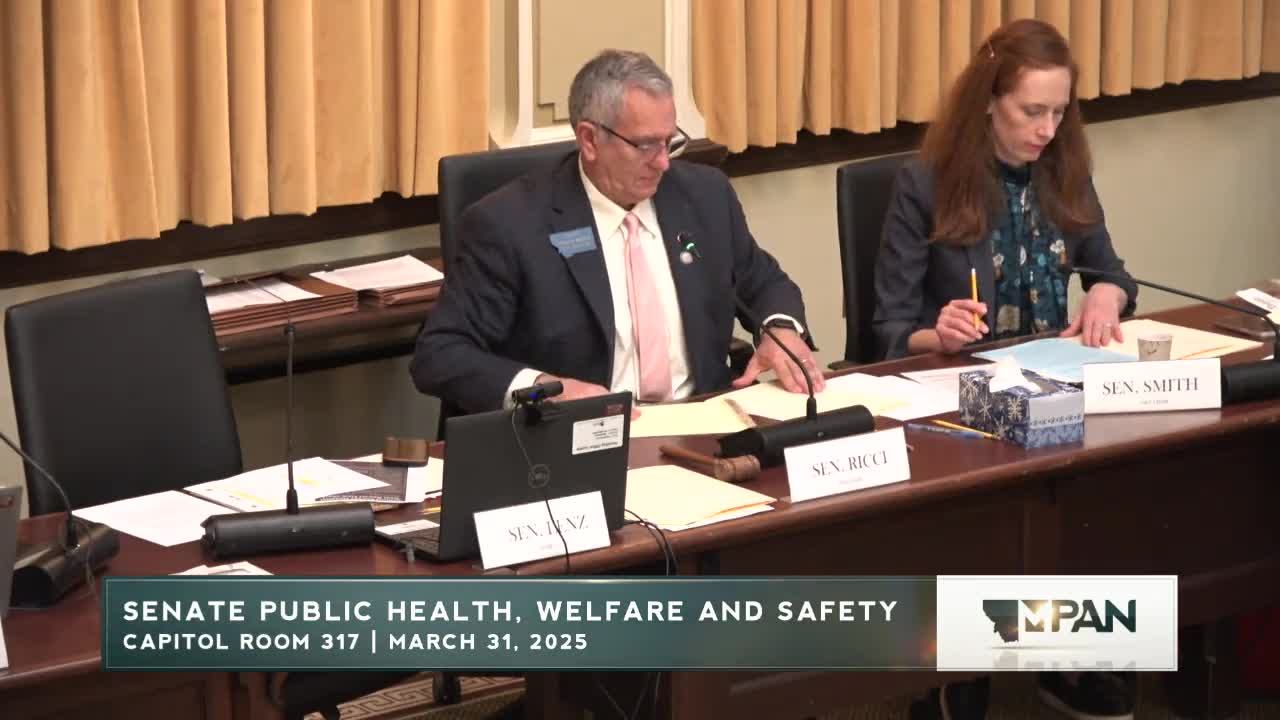
Bill would let patients name an immediate ‘trusted decision maker’ at point of care; backed by medical societies
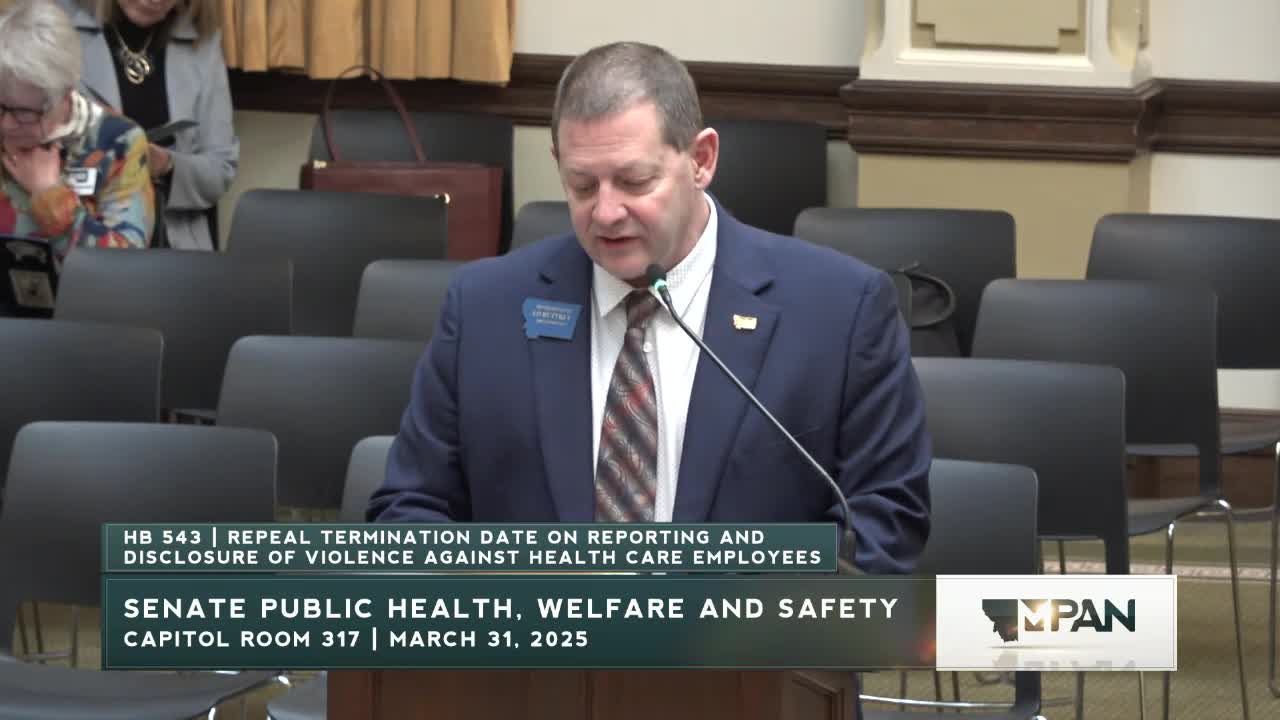
Law that requires quarterly reporting of violence against health workers eyed for continuation; DOJ and nursing groups support repeal of sunset
